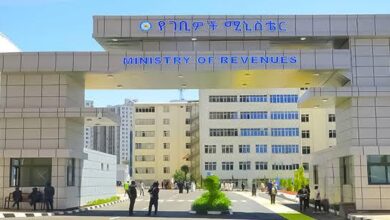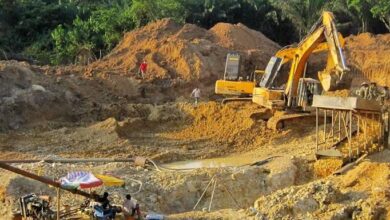
Ethiomonitor -Addis Ababa
October 2, 2025
Ethiopia has made significant strides in its industrialization efforts by laying the foundation stones for two transformative projects that could reshape the nation’s economic landscape: a Urea Fertilizer Plant in collaboration with Nigeria’s Dangote Group and the Gode Refinery, spearheaded by China’s Golden Concord Group (GCL).
The projects were officially unveiled by Prime Minister Abiy Ahmed, PhD, during a prominent ceremony that highlights Ethiopia’s commitment to leveraging its substantial natural gas and oil reserves to foster value-added industries, reduce reliance on costly imports, and enhance its negotiating power in regional trade.
The Urea Fertilizer Plant: Paving the Way for Agricultural Advancement
Agriculture serves as the cornerstone of Ethiopia’s economy, employing approximately 65% of the population and contributing over 30% to the Gross Domestic Product (GDP). However, productivity has been hampered by inadequate soil fertility and a heavy dependence on imported fertilizers.
The forthcoming Urea Fertilizer Plant, developed by Ethiopian Investment Holding (EIH) in partnership with Dangote Group, promises to deliver a substantial boost to domestic agricultural capabilities:
Annual Capacity: 3 million tons of urea fertilizer.
Feedstock: Natural gas sourced from the Kalub gas field.
Infrastructure: A 108-kilometer pipeline connecting the Kalub gas field to the plant.
Ethiopia currently allocates over $1.5 billion annually on fertilizer imports, rendering the economy vulnerable to fluctuations in global prices. The recent disruptions in nitrogen fertilizer supply chains due to the conflict in Ukraine have further underscored this dependency.
By establishing domestic production, Ethiopia stands to save billions in foreign exchange while ensuring a stable supply of inputs for millions of smallholder farmers. As remarked by an economist in Addis Ababa, “This project is about more than fertilizer; it’s about food security, fiscal stability, and Ethiopia’s capacity to define its own agricultural future.”
The Gode Refinery: A New Era for Ethiopia’s Hydrocarbon Sector
For years, Ethiopia’s hydrocarbon reserves in the Ogaden Basin were often regarded as “potential” due to challenges related to insecurity, inadequate infrastructure, and political instability. The initiation of the Gode Refinery marks a pivotal shift in this narrative.
Constructed by China’s GCL Group, the refinery is projected to:
Processing Capacity: 3.5 million tons of crude oil annually.
Source: Crude oil extracted from the Hilala oil field in the Somali Regional State.
Output: Diesel, gasoline, and jet fuel for both domestic consumption and regional export.
Currently, Ethiopia imports nearly all of its refined petroleum products, incurring costs exceeding $3 billion annually, which significantly contributes to foreign exchange shortages.
Should the refinery prove successful, it could position Ethiopia as a net exporter of petroleum products to neighboring countries, including Djibouti, South Sudan, and Somalia.
Furthermore, for the Somali Regional State—historically associated with marginalization, conflict, and poverty—the refinery symbolizes a pivotal opportunity for industrial inclusion and economic development.





